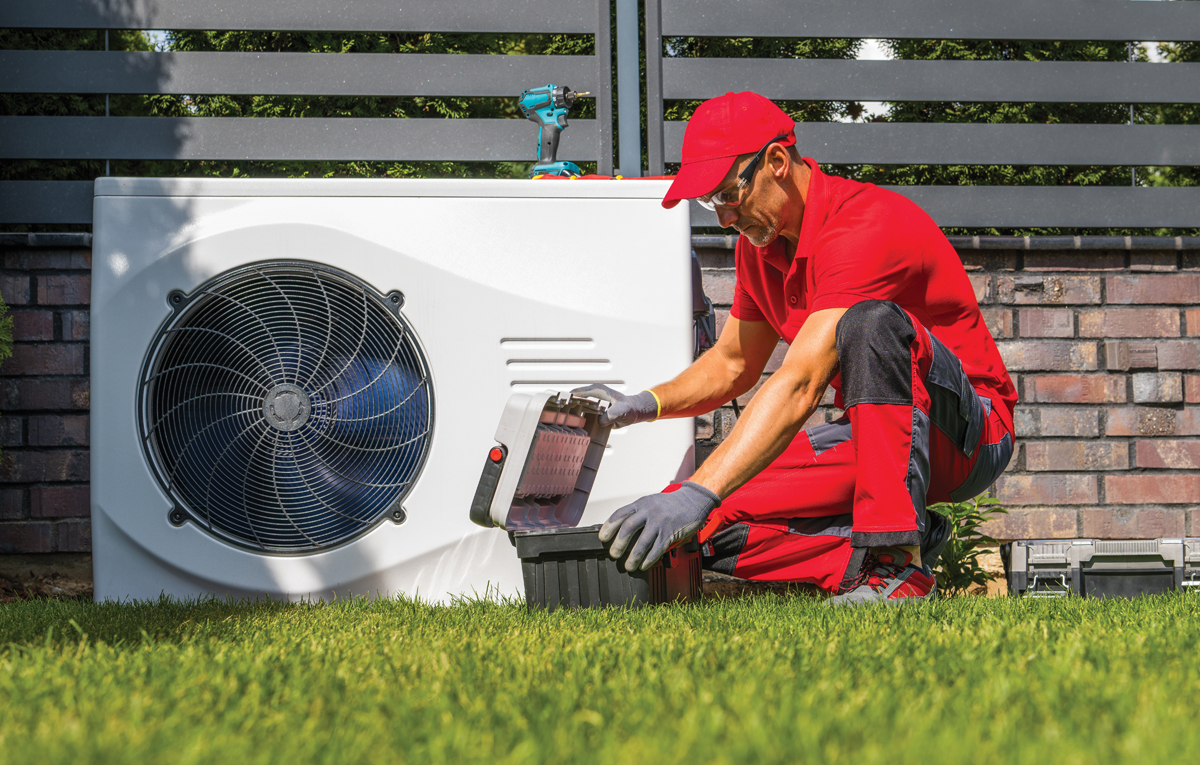Navigating Home Comfort: A Guide to Efficient HVAC Upgrades
By Melissa Esposito | Summer 2024 | High-Performance House
There are far more sexy ways to update a home than by upgrading your HVAC system—but few can be as important to ensuring your abode is comfortable, safe, and energy efficient.
While most units can last upwards of 10 to 20 years, the technology for these systems is ever-evolving and progressing toward more sustainable options. Whether you’re buying a home, looking to make your current one more efficient, or find yourself suddenly in the market for a new system because yours has reached end of life, there are several important considerations to keep in mind when taking the leap.
“The number one aspect is to have the right-sized system,” says Matthew LeFevre, owner of Hot Water Solutions in Kingston. “We find that most systems, especially in older homes, are oversized, and that’s not necessarily due to an error in design—it’s mainly that we didn’t have the home efficiency options of today, such as better windows or insulation, so they were designed to be much bigger to make up for the typical heating and cooling losses.”
Hot Water Solutions is a comprehensive heat pump sales company specializing in renewable energy, non-fossil fuel systems, and a range of Mitsubishi-brand units. LeFevre’s father opened the company in 1996, so you can imagine the leaps in technology that have happened since then.
“Doing a renewable electric system is usually our top choice today, because it’s where energy use is going,” he explains. “As renewables like solar, wind, and water are being used more to generate electricity, electric is how we’re getting away from reliance on fossil fuels. But essentially, it depends on both what the home needs, and how much the homeowner is able to invest upfront.”
So, how do you know if it’s time to upgrade? LeFevre says some of the easier signs are high fuel bills, noisy systems, vast temperature swings—such as a room getting cold within minutes of turning down the heat, and if you’re needing increasingly more maintenance to your current unit.
Although today’s savvy consumers have the vast resource of the internet to search for options and prices, there’s more to selecting an HVAC system that an expert can help guide you through, such as additional benefits like state and federal rebate programs. “Internet research is fine because it can give you ideas, but we always suggest working with a company to find the most efficient and cost-effective system for your home,” he says.
Plus, a company like Hot Water Solutions can provide recommendations for further home upgrades to act as a boost to your HVAC efficiency. “Before we even get to an appointment, we first look at the home details and come up with a pre-heat load calculation,” LeFevre explains. “When we arrive, we’ll take a look at the exterior, insulation, and building materials used, then adjust that calculation. To determine the ideal system size, a specialist will do a Manual J Load calculation—a formula used to identify a building’s HVAC capacity, which in turn determines what size equipment is needed. We’re BPI-Certified and can offer some additional efficiency recommendations while assessing the home; we’re here to set you up with a heating system, but we’re concerned about the whole building envelope.”
Although the house’s needs may determine the best option, cost can be a factor in deciding what system to choose. “You can spend more upfront and get a higher-efficiency system that allows you to pay less down the road in utility bills,” he explains, “but some people can’t do an upfront investment, so we have options where you’ll pay less now, but might still have bills slightly higher than with more efficient units.”
One example he gives is of a client in Kingston who had an older brick home with an outdated gas boiler; her gas bill was $600 to $700 per month. “We recommended a few lifestyle changes and set up a Mitsubishi ductless system, which allows room-by-room control—instead of one central thermostat, each room has its own, so you can turn it down in the bedroom if you’re going to be in the living room for the afternoon,” he explains. After making these changes, her bill went down to about $110 per month.
“We’ve had people say their bills became as much as 70 percent lower since getting off fossil fuels, or even 100 percent lower when someone went solar. But on average, you might see a savings of 40 to 70 percent,” LeFevre says. “The key is to choose a company with a good reputation that takes the time to find the right option for your specific home—every house is different and needs a custom system.”
